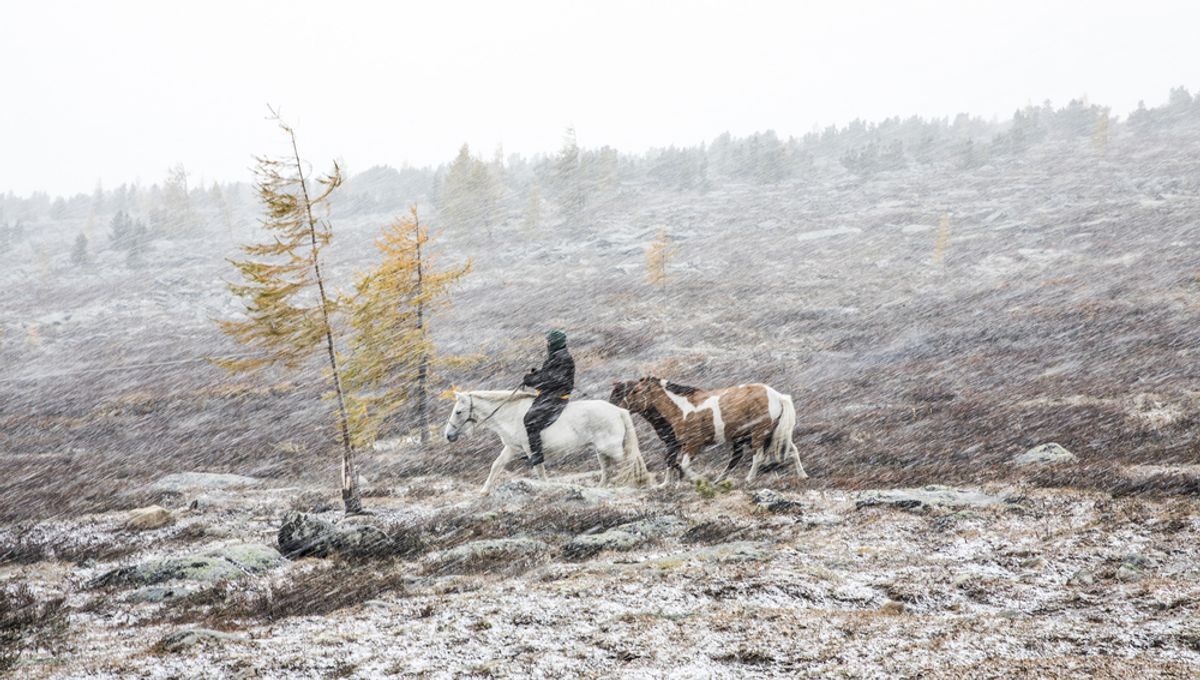
The permafrost of east Eurasian mountains is slowly melting away, helping to reveal the buried bodies of the much-feared Mongol Empire – as well as their unquenchable thirst for yak milk.
Research has studied the remains of a cemetery at the so-called Khorig site, located high in the Khovsgol mountains. Dating suggests that the cemetery was operating in the 13th century starting around the time of the Mongol Empire’s unification in 1206 CE.
This was the year when the infamous Genghis Khan was proclaimed the ruler of all Mongols. With the help of a fearless horseback army, he launched a series of bloody military campaigns across Asia, laying the foundations for the largest contiguous land empire in history that spanned from the Pacific coast of Asia to Eastern Europe. The world was never the same again.
In 2018 and 2019, the skeletons of 11 individuals were discovered at the elite burial site after they had partially been revealed by melting permafrost. The bodies were still in surprisingly good condition, despite being over 800 years old, thanks to the sub-zero temperatures preserving the remains.
Buried alongside lavish grave goods and dressed in fine materials, it appears the people interred here held a high social status.
For this latest study, the researchers were particularly interested in analyzing the remains to understand the lifestyle and diets of these Mongol Empire aristocrats. By looking at the proteins found within ancient dental calculus, the team found direct evidence they drank the milk of horses, sheep, goats, cows, and – most notably – yaks.
The team was particularly excited to find evidence of yaks as the animals play a hugely significant role in the culture of people in the high-altitude regions of eastern Eurasia. They’re also extremely practical for life in this harsh environment, providing a high-calorie food source, thick hair for warm textiles, and fat to make useful commodities like candles.
“Our most important finding was an elite woman buried with a birchbark hat called a bogtog and silk robes depicting a golden five-clawed dragon. Our proteomic analyses concluded that she drank yak milk during her lifetime,” Alicia Ventresca-Miller, assistant professor of anthropology at the University of Michigan, said in a statement. “This helped us verify the long-term use of this iconic animal in the region and its ties to elite rulers.”
“Ceramic vessels were turned into lanterns made of dairy products, which revealed long-standing religious ideas and the daily life of the elites of the Mongol empire,” added J. Bayarsaikhan, a researcher at the Max Planck Institute for the Science of Human History and the National Museum of Mongolia.
Although the thawing permafrost has helped scientists find the bodies, it’s leaving the historical remains more vulnerable to looting. If temperatures continue to rise and the permafrost further degrades, then it’s feared some frozen archaeological remains, both here and beyond, may be destroyed before they can be properly appreciated.
“The degree of looting that we are seeing is unprecedented. Nearly every burial that we can locate on the surface has recently been destroyed by looting activity,” explained Julia Clark, an archaeologist at Nomad Science.
The study is published in the journal Communications Biology.
An earlier version of this article was published in April 2023.
Source Link: Revealed By Thaw: The Ancient "Mummies" Of The Mongol Empire